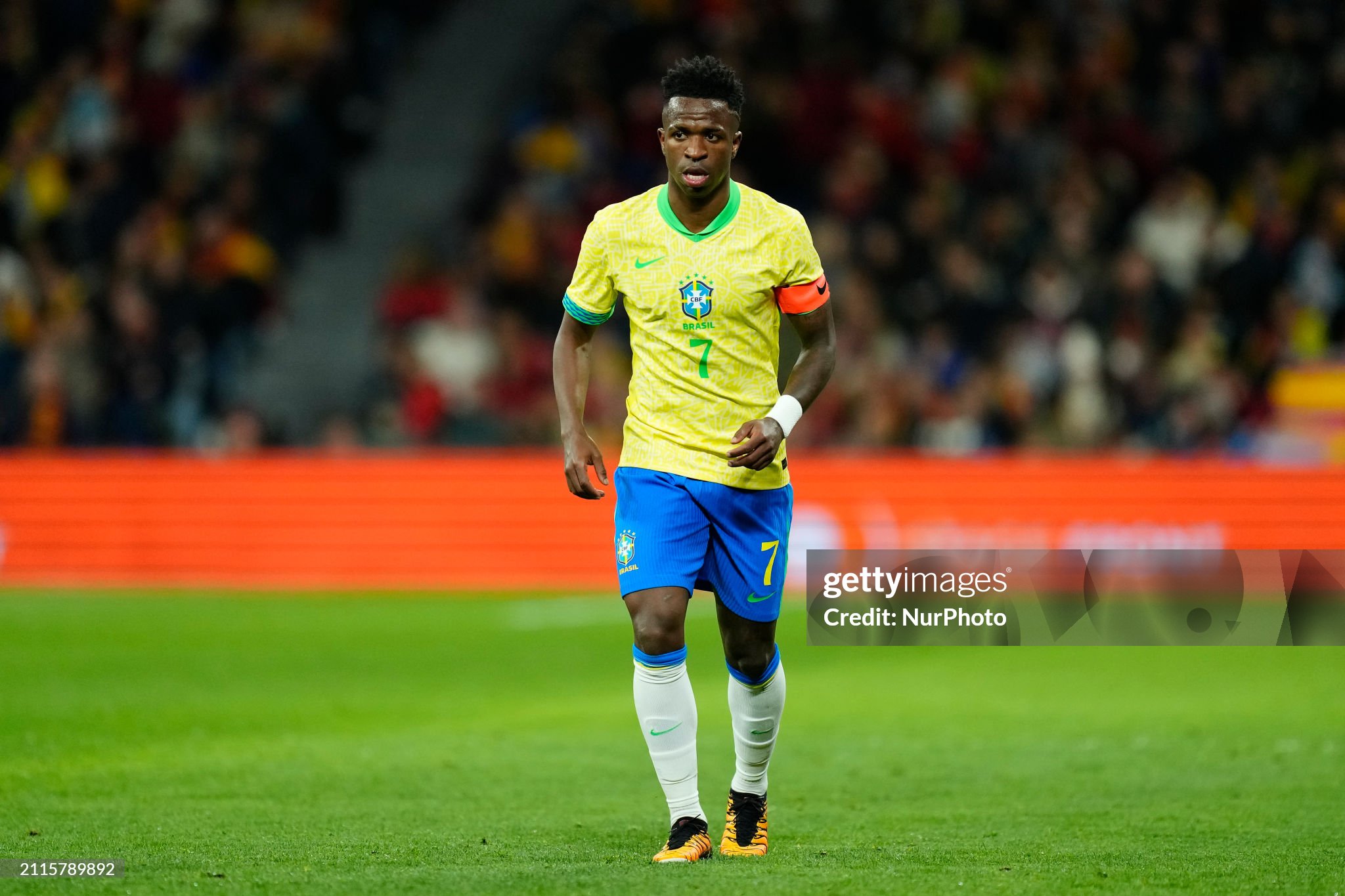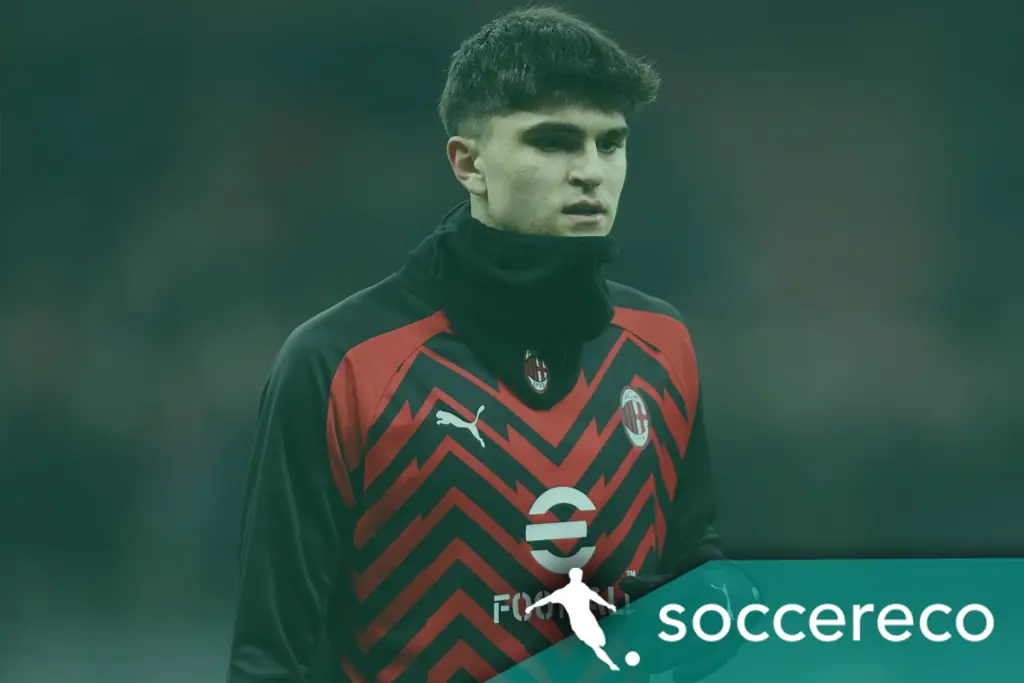It's a crisis in Brazil. With six qualification matches remaining for the 2026 World Cup, the team finds itself in an unrecognizable state. On Wednesday night, they ended 2024 with a 1-1 draw against Uruguay.

Brazil has been waiting for a new World Cup title since 2002, a drought that feels increasingly significant for a nation that has historically dominated global football.
With a record five titles, Brazil's reputation as a footballing powerhouse is unmatched, but the current state of the Seleção has left fans and pundits questioning whether the team can return to its former glory. As the South American qualification cycle for the 2026 World Cup progresses, Brazil finds itself in an unfamiliar and concerning position. After twelve matches, the Seleção sits in fifth place, trailing behind Argentina, Uruguay, Ecuador, and Colombia. This marks a stark contrast to previous cycles, particularly the lead-up to the 2022 World Cup, where Brazil navigated qualification without a single defeat. Now, the team has already suffered four losses, exposing weaknesses that were once unthinkable for a nation that prides itself on football supremacy.
At the heart of Brazil’s struggles lies a glaring leadership void. Historically, the Seleção has been led by figures who embodied confidence and determination, inspiring both teammates and fans. However, today’s team lacks such a figure. This absence has been particularly evident in the attack, where inconsistency and a lack of cutting edge have plagued the team. Brazil began their qualification campaign with a resounding 5-1 victory over Bolivia, sparking optimism for a strong path to the 2026 World Cup. Yet, in the ten matches that followed, the Seleção managed to score only 11 goals, a dismal return for a team renowned for its attacking flair.
Superstars like Vinícius Júnior and Raphinha, who light up Europe’s top leagues with their club performances, have struggled to replicate their form in the iconic yellow jersey. The burden of leadership has naturally fallen on Vinícius Júnior, but the Real Madrid star appears to be struggling under the immense pressure. Brazilian media have not held back in their criticism, with UOL Esporte remarking, “Vinícius becomes a problem when he tries to be Neymar.” This statement encapsulates the challenge of stepping into the shoes of a player like Neymar, whose influence on the Seleção extended far beyond his individual contributions.
The statistics highlight this disparity. Vinícius, despite his immense talent, has managed only five goals and five assists in 37 international appearances. Neymar, by comparison, has amassed 79 goals and 57 assists in 128 caps, surpassing Pelé’s record as Brazil’s all-time leading scorer. More importantly, Neymar has consistently delivered in critical moments, cementing his legacy as one of the most impactful players in the history of Brazilian football. Vinícius, on the other hand, has yet to prove himself in similar situations. Critics, including BeinSports, have pointed out his lack of impact in decisive moments, noting that his performances at the 2022 World Cup and the recent Copa América failed to meet expectations. While his potential is undeniable, his emotional volatility and tendency to emulate Neymar’s style have hindered his ability to develop into a true leader.
Beyond individual struggles, Brazil’s current woes also stem from a lack of continuity, both on the pitch and in management. Since Tite stepped down as head coach after the 2022 World Cup, the Seleção has cycled through three different managers. This constant turnover has disrupted the team’s cohesion and identity, leading to inconsistent performances. The instability has also been evident in Brazil’s defensive lineup, particularly in the full-back positions. Once a source of strength, with legends like Roberto Carlos and Dani Alves setting the standard, the current full-back options have failed to inspire confidence. These defensive vulnerabilities were laid bare during Brazil’s elimination by Uruguay in the Copa América, a defeat that left fans and former players alike in disbelief.
The frustration among fans reached a boiling point during Brazil’s final match of the year, a 1-1 draw against Uruguay. The Seleção was met with jeers from the crowd, a rare occurrence for a team that has long been a source of national pride. While some observers tried to find positives in the game, noting the promising movement of attackers like Vinícius, Raphinha, and Savinho, the overall performance left much to be desired. Brazilian newspaper O Globo summed it up by stating, “The problem was once again their inability to take the next step. Despite the constant positional changes around Uruguay’s penalty area, it was difficult to create spaces. And when they did, they often failed with the decisive pass.” The defensive frailties, too, remain a glaring weakness, exacerbated by frequent changes in personnel and a lack of cohesion.
Despite these challenges, Brazil’s place in the 2026 World Cup is not in immediate jeopardy. The South American qualification system grants direct entry to the top six teams, with the seventh-place team entering a playoff. For Brazil to miss the tournament, they would need to drop three more places in the standings. Currently, eighth-place Venezuela has 12 points, while Brazil sits comfortably ahead with 18. It would take an extraordinary collapse for the Divine Canaries to miss out on the tournament in the United States, Canada, and Mexico. However, the broader concern lies in the overall trajectory of Brazilian football. The once-dominant force now appears to be a shadow of its former self.
For a nation that views football as more than just a sport, Brazil’s current struggles are deeply troubling. While the talent pool remains deep the Seleção boasts the third most valuable squad in the world, according to Transfermarkt the team has yet to find a way to translate this potential into consistent success. As the qualification cycle continues, Brazil faces not only the challenge of securing their place at the World Cup but also the daunting task of rebuilding their identity and restoring their reputation as the kings of football.
Updated: 12:29, 20 Nov 2024








